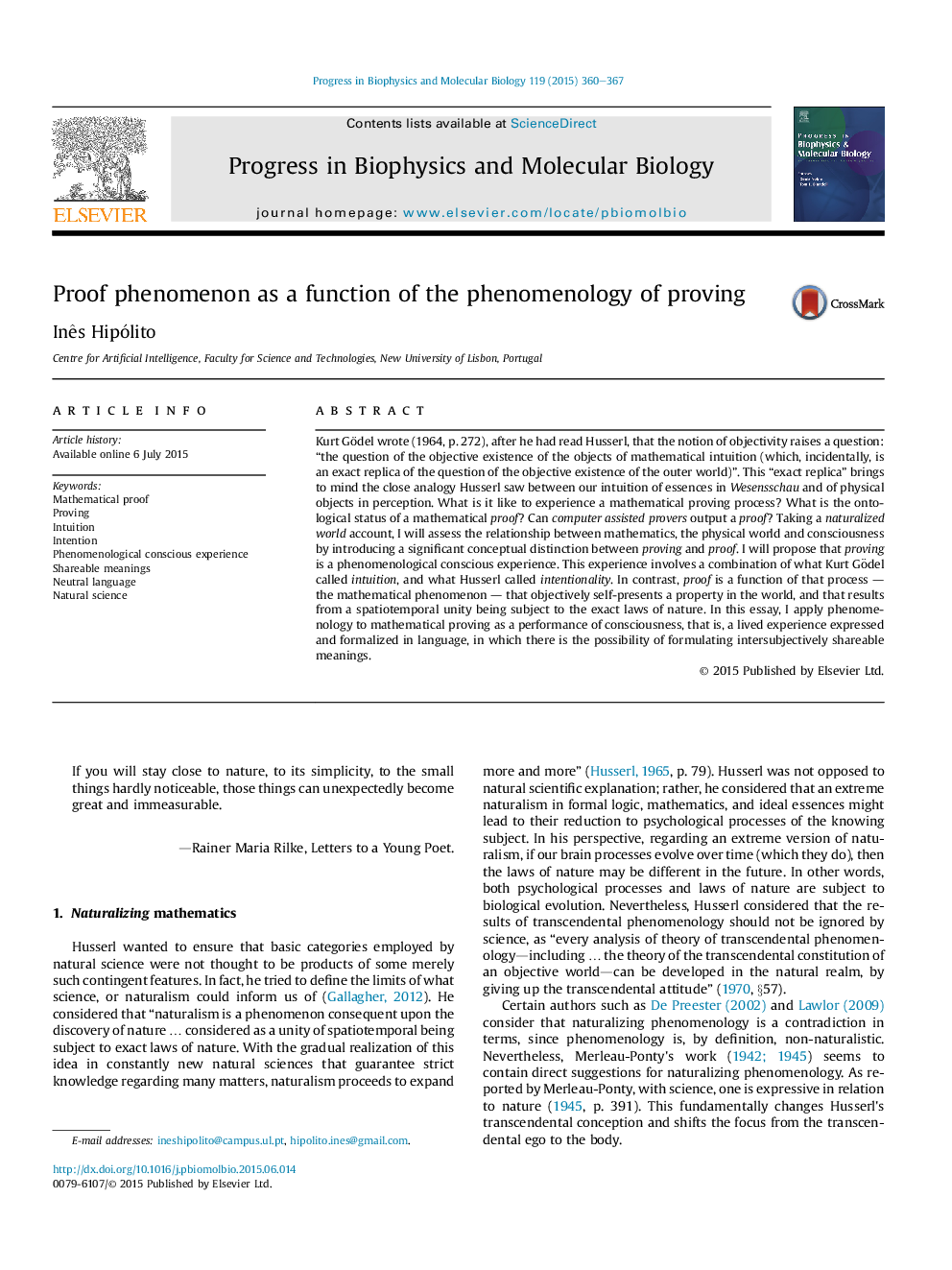| Article ID | Journal | Published Year | Pages | File Type |
|---|---|---|---|---|
| 2070089 | Progress in Biophysics and Molecular Biology | 2015 | 8 Pages |
Kurt Gödel wrote (1964, p. 272), after he had read Husserl, that the notion of objectivity raises a question: “the question of the objective existence of the objects of mathematical intuition (which, incidentally, is an exact replica of the question of the objective existence of the outer world)”. This “exact replica” brings to mind the close analogy Husserl saw between our intuition of essences in Wesensschau and of physical objects in perception. What is it like to experience a mathematical proving process? What is the ontological status of a mathematical proof? Can computer assisted provers output a proof? Taking a naturalized world account, I will assess the relationship between mathematics, the physical world and consciousness by introducing a significant conceptual distinction between proving and proof. I will propose that proving is a phenomenological conscious experience. This experience involves a combination of what Kurt Gödel called intuition, and what Husserl called intentionality. In contrast, proof is a function of that process — the mathematical phenomenon — that objectively self-presents a property in the world, and that results from a spatiotemporal unity being subject to the exact laws of nature. In this essay, I apply phenomenology to mathematical proving as a performance of consciousness, that is, a lived experience expressed and formalized in language, in which there is the possibility of formulating intersubjectively shareable meanings.
